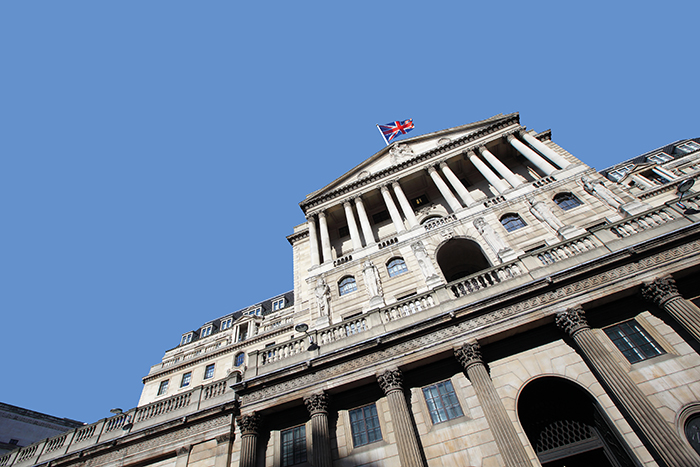
Bank of England chief economist Huw Pill said the central bank is still “some way off” cutting interest rates.
The Monetary Policy Committee member added that he wanted to see “more compelling evidence” that inflation is being squeezed out of the UK economy and stronger signs of economic growth.
The Bank’s base rate is currently 5.35%, as it battles to control inflation at 4%, which is above its 2% target.
Pill was one of six policymakers on the nine-member committee who voted to leave interest rates on hold last month. Two voted to raise to 5.5%, and the ninth — Swati Dhingra — wanted a 25 basis point cut.
Pill, in a speech at Cardiff University Business School, explained why a base rate cut would take some time.
He said: “I expect to see headline consumer price inflation continue to fall in the coming months, and likely to approach or even fall below the 2% inflation target this spring.
“But the drivers of this decline in annual headline inflation are a combination of base and external effects.
“We need to guard against being lulled into a false sense of security about inflation developments over the medium term by the mechanical effects of high monthly inflation a year ago dropping out of the calculation of annual rates and/or the impact of downside surprises in international commodity prices, notably for energy and food.”
He pointed out: “While economic activity remains weak in the UK – with real gross domestic product contracting in the second half of last year according to the latest vintage of data – I attribute a significant part of this weakness to developments on the supply side.”
The UK fell into a technical recession last week after gross domestic product fell by a larger-than-expected 0.3% between October and December, after it had already contracted by 0.1% between July and September.
The policymaker says: “In my view, we have some way to go before such evidence becomes conclusive.
“While that persistent component of inflation continues to threaten the lasting and sustainable achievement of the 2% inflation target, the Monetary Policy Committee will need to maintain a degree of restrictiveness in its monetary policy stance to squeeze this persistent component out of the system.”
Financial markets are currently betting that the Bank of England’s first rate cut may not come until August – until recently it was anticipated that a cut would come in June, but this seems now less likely.
Three 25 basis point rate cuts this year are no longer fully priced into the markets, at the end of last year, as many as six were expected in 2024.
“We don’t need inflation to come back to target before we cut interest rates. I must be very clear on that — that’s not necessary,” he told the Treasury Committee last month.



